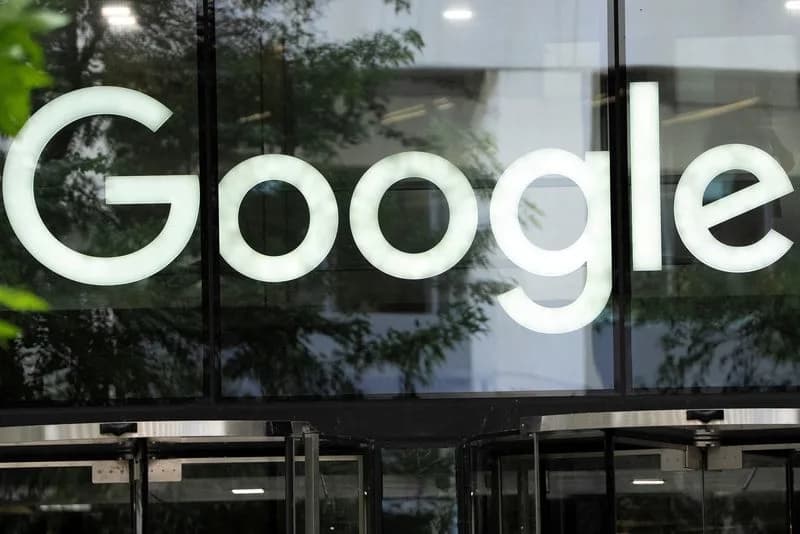We're loading the full news article for you. This includes the article content, images, author information, and related articles.
Google has expressed strong reservations about Australia's new law banning social media for under-16s, particularly its inclusion of YouTube, citing enforcement difficulties and potential unintended consequences for child safety.

Nairobi, Kenya – Google has voiced significant concerns over Australia's pioneering legislation to prohibit social media access for individuals under 16 years old, arguing the ban will be "extremely difficult to enforce" and may not genuinely enhance online safety for children. The technology giant has notably declined to confirm if it is engaging in lobbying efforts with the US government, specifically the Trump administration, concerning YouTube's inclusion in this ban, ahead of Australian Prime Minister Anthony Albanese's upcoming visit to the US.
The Australian Online Safety Amendment (Social Media Minimum Age) Bill 2024, passed in November 2024, mandates that social media platforms take "reasonable steps" to prevent users under 16 from creating accounts. This world-first law is set to take effect on Friday, December 10, 2025, with companies facing substantial fines for non-compliance.
Australia has been at the forefront of global efforts to regulate online content and enhance digital safety, particularly for minors. The Online Safety Act 2021 expanded the powers of the eSafety Commissioner, a government agency dedicated to online safety. Initially, YouTube was expected to be exempt from the under-16s ban due to its perceived educational value. However, following advice from eSafety Commissioner Julie Inman Grant and complaints from other tech firms, YouTube was later included in the legislation in July 2025.
This reversal has intensified the debate, with Google contending that YouTube is primarily a video-sharing and learning resource, not a social media platform. The Australian government's decision to include YouTube was reportedly influenced by research indicating that 76% of 10- to 15-year-olds had used the platform and many had encountered harmful content.
The Online Safety Amendment (Social Media Minimum Age) Act 2024 requires platforms to implement age assurance systems by December 2025. These systems will not necessarily demand government identification but will instead rely on artificial intelligence and behavioural data to infer a user's age. Companies that fail to comply face fines of up to AUD$49.5 million (approximately US$32 million).
The legislation does not include parental consent exceptions, meaning the ban applies even with parental approval. While children will still be able to view YouTube content without an account, they will be restricted from creating accounts, subscribing to channels, commenting, or uploading content.
Rachel Lord, Google's Senior Manager of Government Affairs and Public Policy in Australia and New Zealand, testified before a Senate inquiry on Monday, October 13, 2025, stating that the ban would have "unintended consequences" and would not make children safer online. She argued that forcing children to use YouTube without an account would remove access to crucial parental controls and safety features designed to protect them.
Google's Director of Government Affairs and Public Policy, Stefanee Lovett, when questioned about lobbying the US government, stated that US colleagues had been informed about the issues in Australia but did not confirm direct lobbying of the Trump administration. Other major tech companies, including Meta, Snapchat, and TikTok, were invited to the inquiry but declined to appear, prompting calls for subpoenas from Greens Senator Sarah Hanson-Young.
Key Data on Australia's Social Media Ban:
The ban's implementation poses significant challenges for tech companies in developing effective age assurance technologies. Google warns that the legislation could lead to children accessing content through adult accounts, thereby circumventing safety features. Critics also express concern that the law, while well-intentioned, may be largely symbolic if enforcement mechanisms are not robust.
A key unknown remains the extent of Google's lobbying efforts in the US regarding this Australian legislation. While Google has previously engaged influential lobbying firms in Australia to contest other media laws, its current stance on US lobbying for the under-16s ban is unclear. The precise methods and effectiveness of AI-driven age verification without government identification also present an area of uncertainty.
The Australian government has given social media companies until December 10, 2025, to comply with the new age restrictions. Communications Minister Anika Wells and eSafety Commissioner Julie Inman Grant are scheduled to hold virtual meetings with executives from Meta, Facebook, Instagram, and other platforms to outline expectations.
The global tech industry and governments worldwide are closely observing Australia's implementation of this ban, as it could set a precedent for online safety regulations for minors. The effectiveness of the age assurance technologies, the impact on children's online behaviour, and any potential legal challenges from tech giants will be key areas to monitor.
Keep the conversation in one place—threads here stay linked to the story and in the forums.
Sign in to start a discussion
Start a conversation about this story and keep it linked here.
Other hot threads
E-sports and Gaming Community in Kenya
Active 9 months ago
The Role of Technology in Modern Agriculture (AgriTech)
Active 9 months ago
Popular Recreational Activities Across Counties
Active 9 months ago
Investing in Youth Sports Development Programs
Active 9 months ago